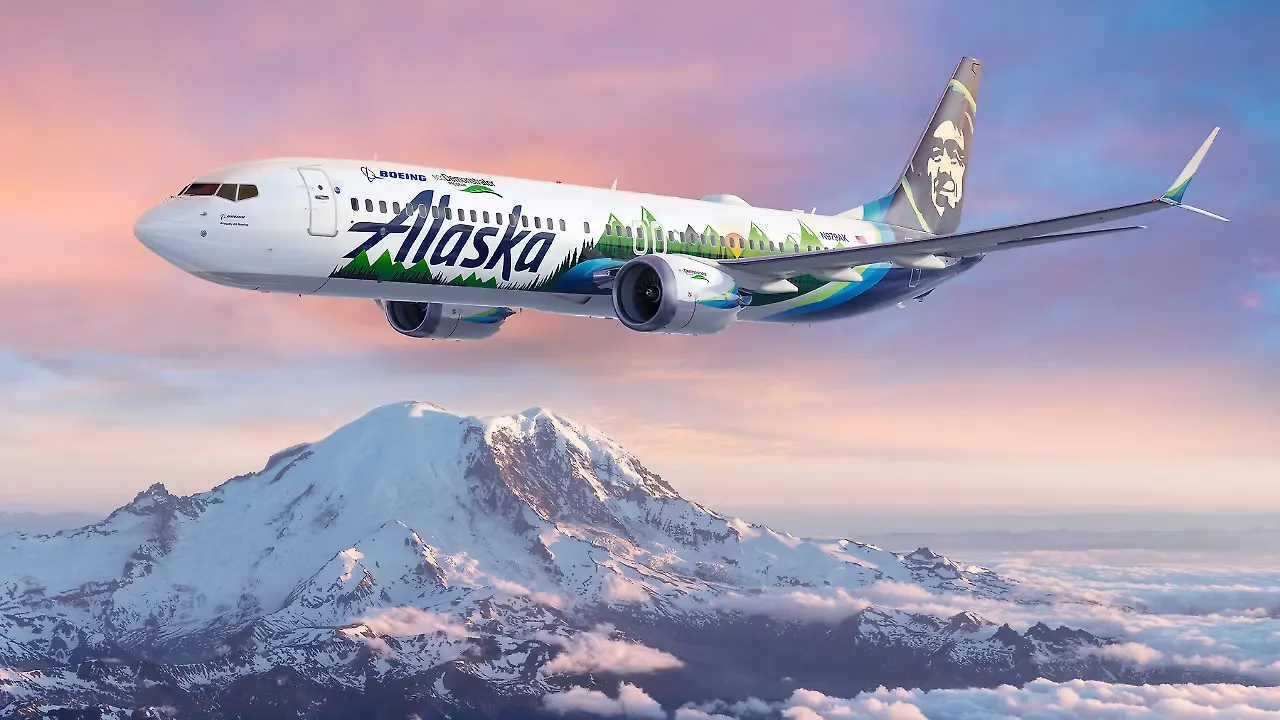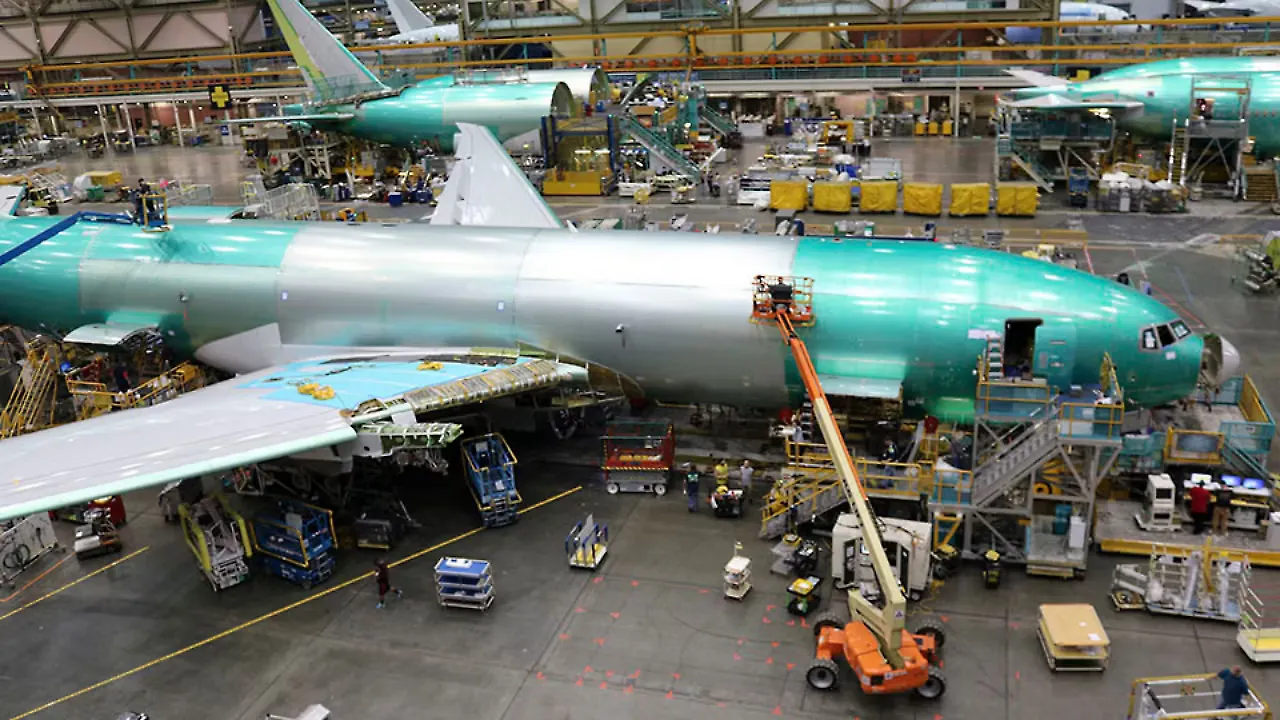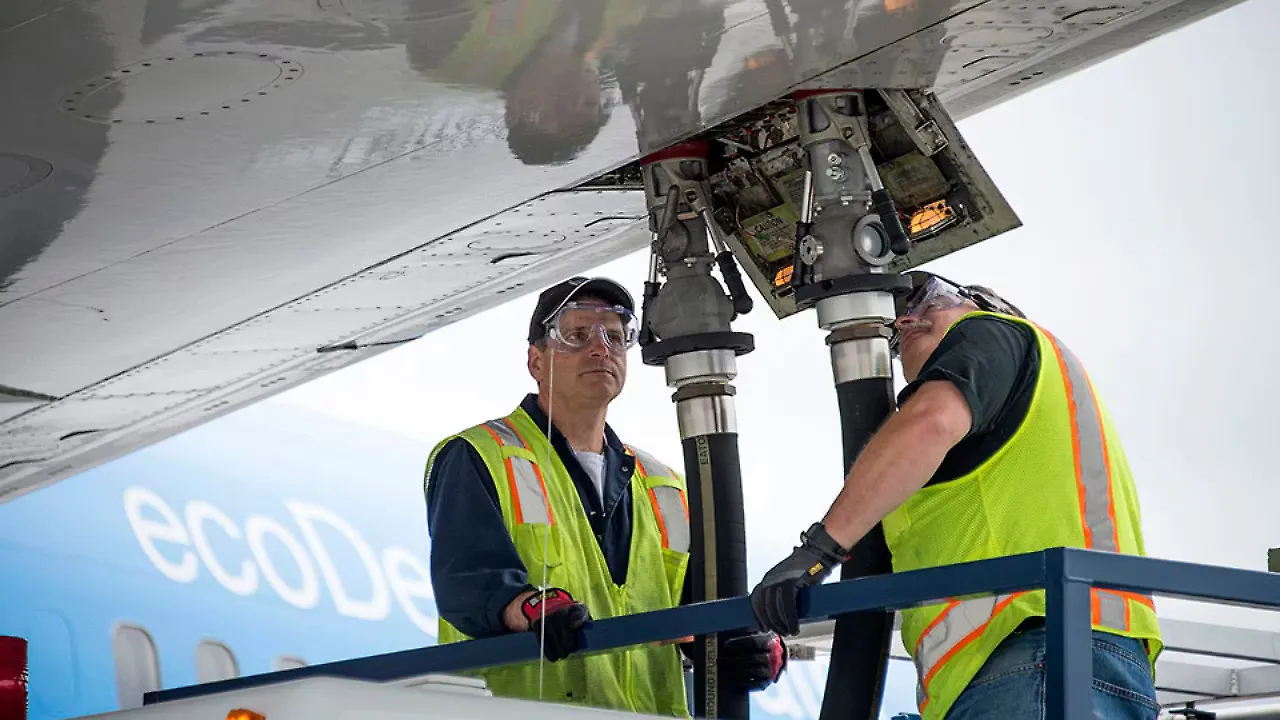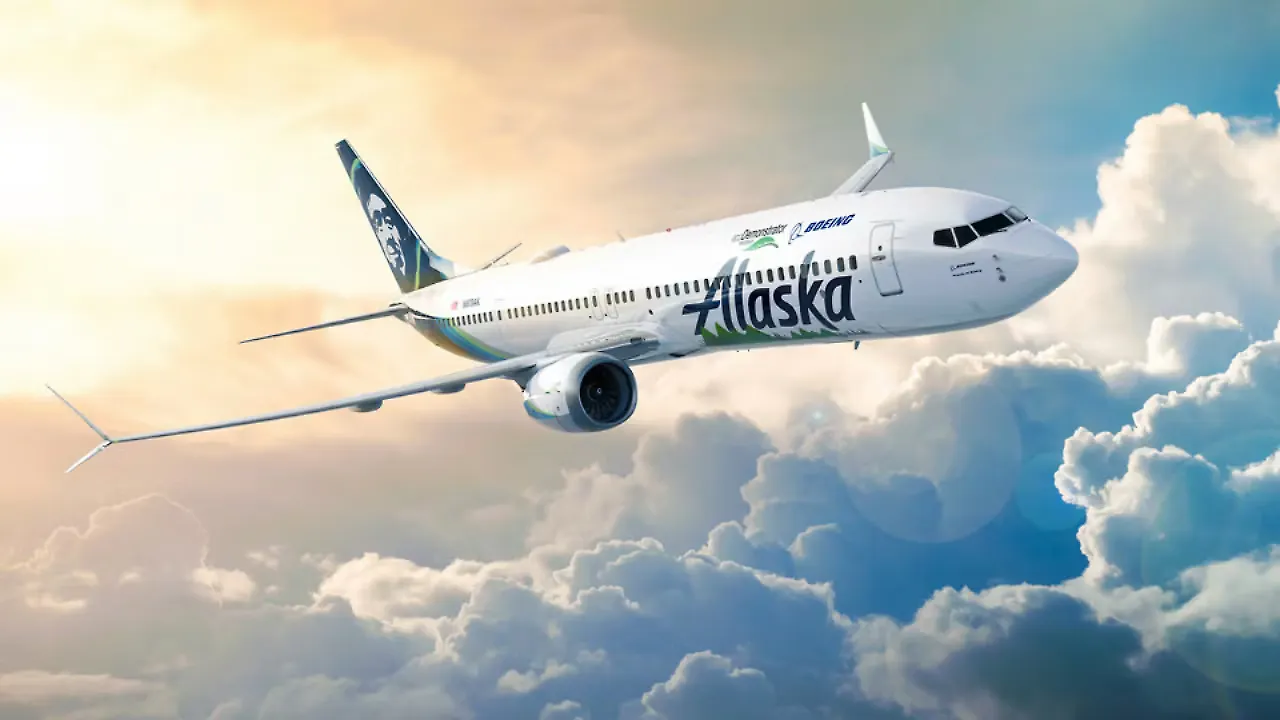
Boeing has announced its ecoDemonstrator goals for 2021, where it will take promising technologies out of the lab and into the air for testing. The airframer’s ecoDemonstrator programmes began in 2012 and have played a key role in accelerating the testing and adoption of new technologies that solve real-world challenges for airlines, passengers and the environment.
For the 2021 ecoDemonstrator Programme, Boeing has partnered with Alaska Airlines to use a modified 737-9 aircraft belonging to the airline. “We’re proud to collaborate with our hometown customer and other partners around the world this year to make flying more sustainable,” said Stan Deal, Boeing Commercial Airplanes president and CEO. Boeing will complete ecoDemonstrator flight tests by December, following which it will reconfigure the aircraft for passenger service and deliver the jetliner to Alaska for commercial operations in mid-2022.
Boeing’s 2021 ecoDemonstrator Programme will carry out a flight test of about 20 technologies, including advanced technologies that will reduce aircraft emissions and noise, recycle carbon composites, a new fire extinguishing agent for aircraft and many more. “Boeing put additional emphasis on sustainability in 2020 to align with our stakeholder and business priorities as well as our values,” Boeing Chief Sustainability Officer Chris Raymond said.

Ready to start
Boeing will commence flight testing from June 29, and five months of ecoDemonstrator flight tests will conclude in December. In addition, Boeing and Alaska will work with nine other partners, including Hanwha, Inmarsat, Cobham and AvionX, to test new technologies. Over the course of flight testing, both the companies will evaluate a new engine nacelle (the outer covering of the engine) designed to reduce noise, assess cabin sidewalls made from recycled material and test a new halon-free fire-extinguishing agent that will significantly reduce effects on the ozone layer.
The technologies proven in previous ecoDemonstrator testing, such as the Advanced Technology winglets, are already in use on current-generation Boeing jetliners such as the new 737 MAX family and have delivered significant fuel use emission reductions. Also proven in previous ecoDemonstrator testing were iPad apps that provide real-time weather and other data to pilots. Besides, Boeing’s upcoming 777X widebody jetliner will feature a new camera system to help pilots avoid obstacles on the ground, thus enhancing safety, and this was also previously tested on the ecoDemonstrator programme.

Pathway for the future
In addition to testing these technologies, Boeing will also be investigating new solutions to make aircraft cabins even cleaner than they are today. One such innovation that will be tested will be overhead air vents that have been modified with special 3D-printed nozzles. These new air vents will create a curtain of air between seat rows, thereby preventing airborne particles from travelling throughout the cabin. The air curtain will force airborne particles downwards towards the floor instead of forwards. Boeing will test the performance of twenty such specially designed overhead air vents. An added benefit of these vents is that there will be no weight penalty on the aircraft, and 3D printing technology could make them lighter even.
Another critical area that Boeing will tackle will be to reduce waste going to landfills from future airplane designs. It will be testing the recycling of carbon composite material left over from the production of its new 777X wing into a cabin sidewall panel. Acoustic testing is presently being conducted to ensure the panels made from this material meet the airframer’s performance requirements, including noise and weight reduction. Recovering carbon fibre material from the composite airplane manufacturing process supports its goals for sustainable manufacturing, and the durable, light material will also reduce fuel use and carbon emissions on the aircraft they are used.
Reduction of noise from commercial jetliners remains an area of priority for aircraft manufacturers. The 2021 ecoDemonstrator programme will evaluate acoustic lining concepts within the engine nacelle with the two-fold objective of reducing noise emissions from current generation engines and help inform designs for next-generation models. For tests, Alaska’s 737-9 demonstrator aircraft will have its right engine nacelle modified with advanced acoustic liners and other treatments made to the thrust reverser (used to help slow down the aircraft after landing). Once tested and verified, these improvements could be implemented on current engine nacelles. “These refinements will also help address the different noise footprint of next-generation ultra-high bypass engines and compact nacelles, which will be shorter and have larger diameter fans than today’s models,” Boeing stated in a presentation on its 2021 ecoDemonstrator programmes.

Boeing will also be testing a new fire extinguishing agent for aircraft intended to replace Halon 1301 (the standard agent for extinguishing airplane engine fires). International environmental and aviation regulations have imposed cut-off dates for the use of Halon1301, due to its ozone-depleting properties. Boeing will evaluate CF3I discharge performance with ground tests to complete its certification. The new fire extinguishing agent CF3I is manufactured by Meggitt PLC and offers the same extinguishing capability yet significantly reduces effects on the ozone layer.
Eco-friendly fuel
All of Boeing’s ecoDemonstrator aircraft test flights are flown using a fuel blend of petroleum-based and Sustainable Aviation Fuel (SAF). Boeing’s 2018 ecoDemonstrator 777 Freighter had made history as the first commercial airliner in the world to fly on 100% sustainable fuel. Boeing committed in January to make its commercial airplanes capable and certified to fly on 100% SAF by 2030. In regular use today, SAF reduces life-cycle CO2 emissions by up to 80%.
Photos courtesy: Boeing.